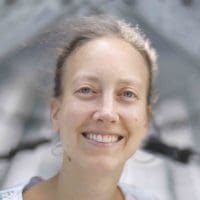The practice of meditative concentration has been proposed to be somewhat equivalent to an attention task. Because the attention and working memory systems are intimately linked, we hypothesized that practicing this particular attention task would make the working memory system more efficient. We tested 29 participants of a Dathun (a month-long intensive meditation retreat), before and after their retreat, and compared their performance to a set of 29 age- and education-matched controls. All participants performed a 30-minute visual memory task (Sternberg, 1966), where they were asked to determine whether a given probe item was member of the just-presented list. To determine how decision processes in WM might be affected by MT, we applied a drift-diffusion model (Wagenmakers et al, 2007) of decision making. This model parses behavioral results into 3 latent measures: amount of information required to make a decision (decision boundary), rate of information accumulation, and non-decision factors. The modeling results revealed that the rate of evidence accumulation increased and the decision boundary decreased in the MT but not control group over time. Moreover, the NEMo model (Kahana & Sekuler, 2002) suggested that this increase in the rate of evidence accumulation was caused by a decrease in encoding noise, rather than other cognitive mechanisms, such as the speed of forgetting. This suggests that working memory becomes more efficient after intensive meditation practice.

Marieke van Vugt, PhD
University of Groningen (Netherlands)
Grantee, Reviewer
Marieke van Vugt is an assistant professor at the Bernoulli Institute of Mathematics, Computer Science and Artificial Intelligence of the University of Groningen (Netherlands). She obtained her PhD in neuroscience … MORE

